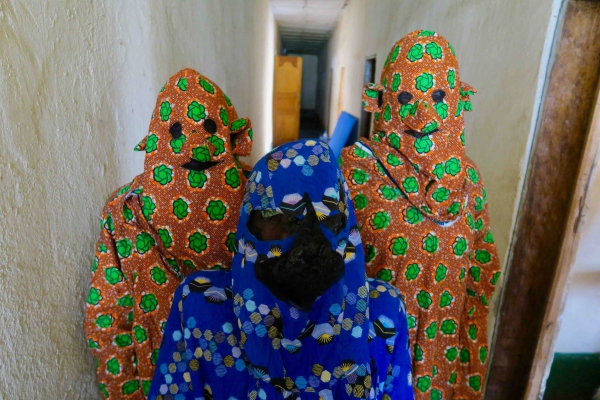In the Democratic Republic of Congo, a military court sitting in the little town of Kavumu struck a historic blow for transitional justice in a place where sexual violence and powerful people generally go unpunished. The week also saw an important verdict for Ethiopia and a move to give the International Criminal Court jurisdiction over “aggression”.
“It was a historic verdict pronounced on Wednesday December 13 by a military court in South Kivu, eastern DR Congo, in the trial of some 20 members of the Army of Jesus militia (Jeshi la Yesu in Swahili) accused of rape and murder,” writes our correspondent Claude Sengenya. “Local politician Frédéric Batumike, head of this militia, and 11 of his co-accused were sentenced to life in jail.”
The little girl victims and their families were able to testify before the court with a series of measures put in place to protect their anonymity. “The trial was conducted in a very professional and almost unprecedented way in the DRC with regard to protecting the identity of some witnesses to safeguard their security and avoid re-traumatizing little girls who were victim of these abominable crimes,” says Susannah Sirkin of Physicians for Human Rights, one of the NGOs that worked on this case along with Trial International. “In particular, the court kept the welfare of victims at the heart of its work. It worked in collaboration with experts, members of civil society, NGOs and judicial authorities, gathered the evidence in a rigorous and scientific way.”
Daniele Perissi, who heads the DRC programme of Swiss NGO Trial International, stresses how important it is that a political personality and militia leader has been convicted. “This is the first time in the DRC that a sitting politician has been found guilty as a hierarchical superior of crimes committed both by himself and the militia he controlled and funded,” he explained. As Susannah Sirkin says, “in the field of human rights, where success only comes over the long term, this is a moment when we can really celebrate the patience and persistence that bring change".
Sudan and Ethiopia
But success is not always there, as ICC Prosecutor Fatou Bensouda reminded the UN, as she once again urged UN member States to implement the long-standing arrest warrant against Sudanese President Omar Al Bashir. He is accused of genocide in Darfur, but continues to travel the world freely, most recently to Jordan and Russia. “The entire judicial machinery of the Court can be frustrated and held in abeyance unless persons sought by the ICC appear before it,” Bensouda told the UN Security Council. Let us remember it was the UN Security Council that referred the crimes in Darfur to the ICC in March 2005, but has taken no steps to sanction member States that welcome Bashir.
In Sudan’s neighbour Ethiopia, many victims are also still waiting for justice. They may take heart from the verdict of a Dutch court sitting in The Hague, which on Friday sentenced a Dutch-Ethiopian man to life in jail after judges found him guilty of war crimes committed during Ethiopia's bloody purges in the late 1970s, a period known as the "Red Terror".
Crime of aggression
The annual meeting of International Criminal Court (ICC) member States ended on Friday with a consensus, compromise agreement to “activate” the Court’s jurisdiction over the crime of aggression. NGOs and campaigners have hailed the decision of the ICC Assembly of States Parties (ASP) in New York as “historic”. “Our hope for peace on earth and good will to all has been given a new and highly significant boost,” said Jutta F. Bertram-Nothnagel, permanent representative to the UN and ICC-ASP of the Union Internationale des Avocats. But the 123 countries of the ASP attached restrictions. The International Peace Institute, a New York-based think tank, said it was doubtful whether aggression will be prosecuted any time soon, given the interpretations of the legal meaning and the political interests involved.







